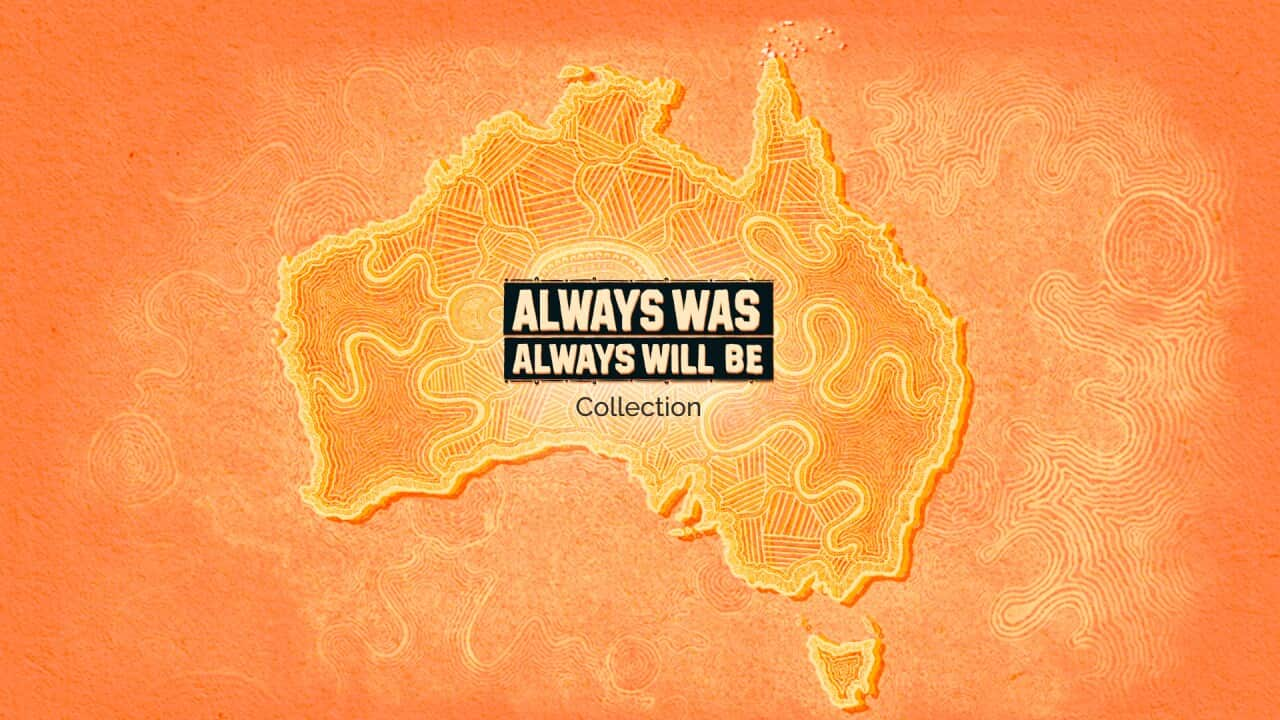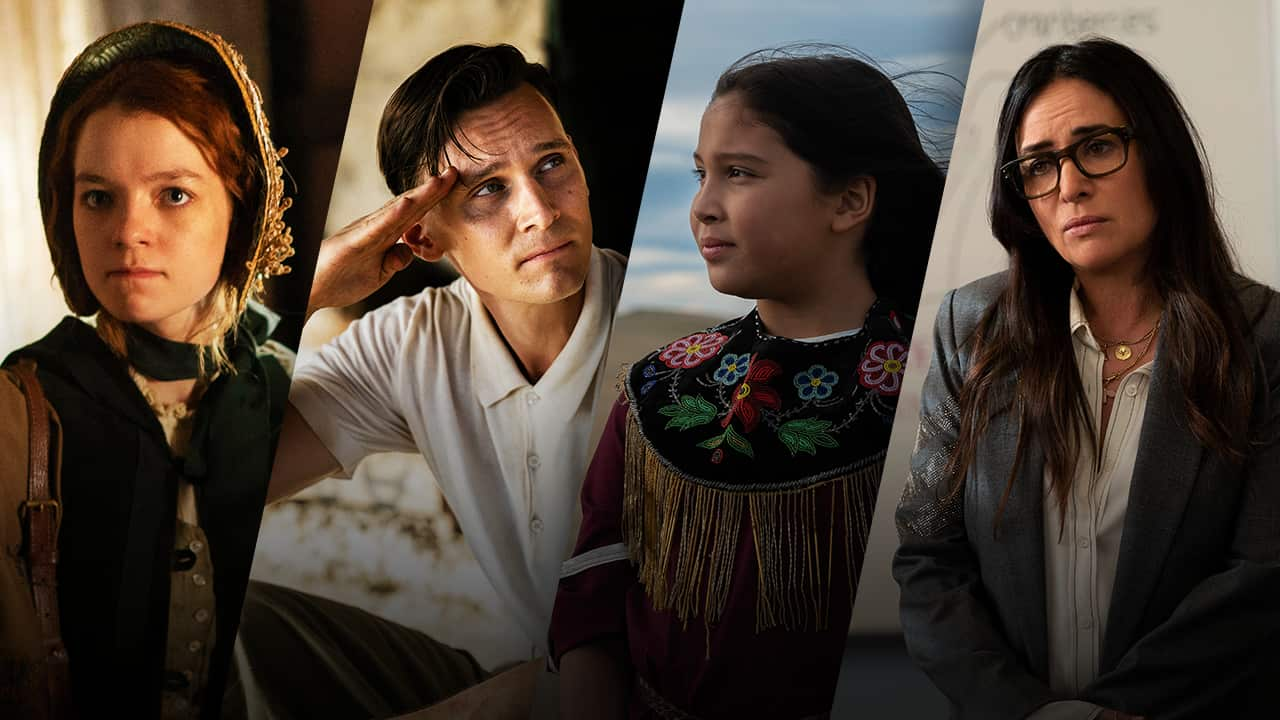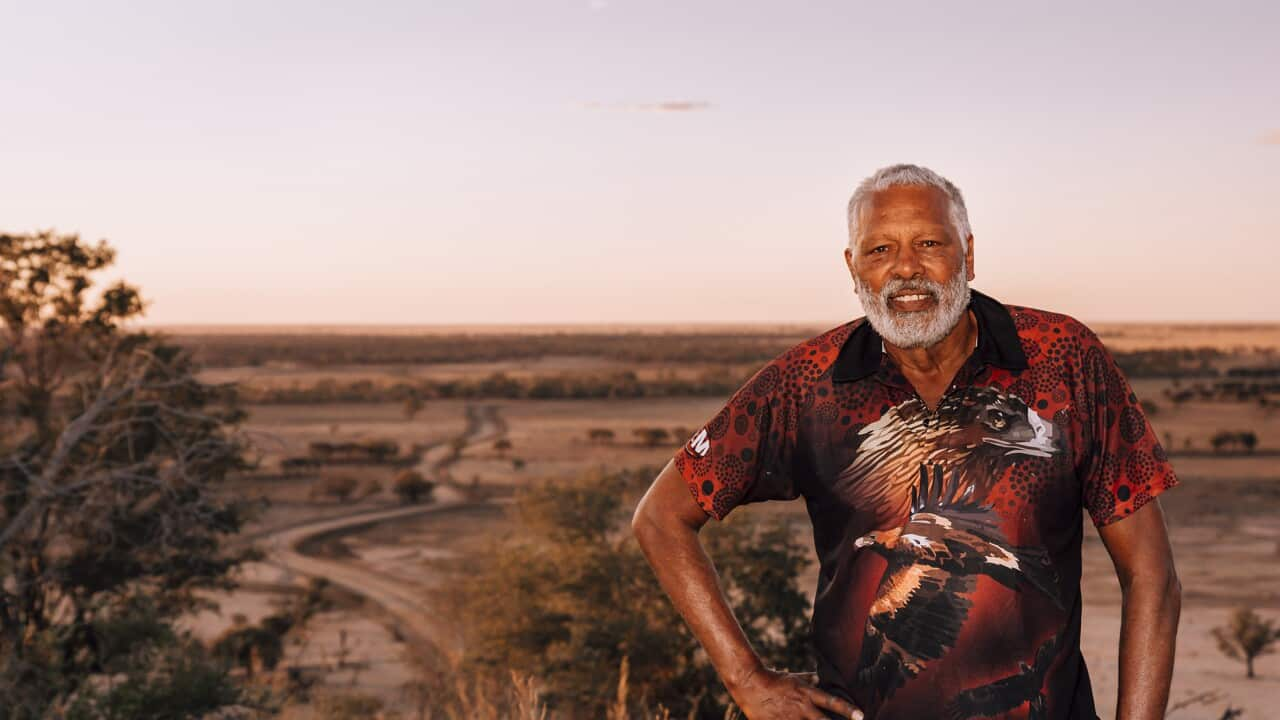— This story contains the names of Aboriginal and Torres Strait Islander peoples who have died. —
Governments come and go, but politicians of all stripes must walk past two of the most important living documents in this land’s history every day they serve at our pleasure (or otherwise) in Canberra’s Parliament House.
Adorned with the totems of 12 Yolngu clans in ochre, charcoal and pipeclay, the Yirrkala Bark Petitions, drawn up in 1963, relayed a message from the Elders of this astoundingly beautiful First Nations coastal community in East Arnhem to the then Menzies government: under no circumstances should their lands, tended for millennia, be desecrated by greedy mining magnates.
Their call for mutual respect and understanding was ignored.
“Their request is as relevant today as it was in 1963,” says lawyer, academic and filmmaker Larissa Behrendt.
While those two petitions remain encased in glass at Parliament House and another hangs at the nearby National Museum of Australia, it was the unexpected resurfacing of a long-lost fourth bark that piqued the interest of Behrendt. Her glowing documentary One Mind One Heart traces its journey home.
Debuting at last year’s Adelaide Film Festival, the film will now broadcast simultaneously on NITV and SBS on January 19, kicking off . “The Yirrkala Bark Petitions are a classic way in which my legal background and filmmaking come together,” she says. “Because it was such an important political and legal document, very articulately laid out by the Yolngu, about their rights to their Country. It felt, post-Voice referendum, that that that petition could speak as loudly now as it could in 1963.”
Behrendt has come to think that filmmaking is one of the most effective ways to share stories like this, not least because the Yirrkala Bark Petitions are so visually resplendent. “Getting the message through is easier done through storytelling than it is through legal arguments or academic lectures,” she says with a wry smile.
I hope what would also come through in the film is just how determined and steadfast the Yolngu people have been.
“And while it’s frustrating that the Yirrkala Bark Petitions were ignored, I hope what would also come through in the film is just how determined and steadfast the Yolngu people have been,” Behrendt adds. “They have not given an inch.”
One of a host of powerful Aboriginal women who speak up loud and proud in One Mind One Heart, Yolngu Elder Yananymul Mununggurr is the daughter of Dhunggala Mununggurr, one of the original signatories. “I’m really drawn to stories where there is strong female leadership and feel most confident about telling them,” Behrendt says. “That’s partly because, growing up in the Aboriginal community, I saw those women all the time.”
A reality that needs more focus, Behrendt suggests. “Too often I hear non-Indigenous people talking about Aboriginal women as though we’re victims and passive, but what I see in Yananymul is that quiet strength and quiet leadership. She really brought to life what was at stake and the significance of what her community is fighting for. It’s a way of breaking down those stereotypes.”

Yolngu Elder Yananymul Mununggurr with Joan McKie, who played a role in the fourth Bark Petition's journey, in 'One Mind One Heart'. Credit: Bernard Wright
Even strong leaders have their doubts. In the wake of the failed Voice referendum, Yananymul Mununggurr, understandably frustrated by the lack of progress towards truth-telling and Treaty, considered whether the community should call for the return of the barks. “I really love that, on reflection, she now appreciates they are where they belong,” Behrendt says. “The placing of something significant brings its own particular weight to it, and they continue to be a mirror.”
If only more politicians would take the time, as they rush through Canberra’s halls of power, to look into it.
That’s what the outstretched arms of One Mind One Heart asks of us all. “I would hope that for First Nations people, the film is a reminder of how much we’ve been through and that we’re still really strong, so it’s uplifting,” Behrendt says. “For the non-Indigenous audience, I hope it gives them a deeper insight into the rightness of this campaign.”
The documentary underlines that there has always been a strand of thought with the vision to see how Aboriginal law and that of state and federal governments can sit side by side, stronger together, Behrendt says. “That has always hit up against the arrogance that there can only be one way of doing it and that one way is superior.”
Surrounded by the beauty of the Yirrkala community, Behrendt was encouraged by the young people she met who are ready to take up the cause. “You see the next generation of Yolngu, rich in their Culture and history, and so articulate in expressing themselves, and it’s very inspiring.”

Filmaker, lawyer and academic Larissa Behrendt. Source: Supplied
Having One Mind One Heart screen on NITV is a thrill, as Behrendt was the channel’s inaugural Chair. “I wasn’t a filmmaker, then, so every time I get the chance to tell a story on NITV, it has a special resonance for me. And SBS is so central to embracing the idea that Australia is actually a place where many cultures have come together and to share that expression of our multiculturalism.”
Behrendt wonders why we wouldn’t collectively embrace this. “I’ve always been astounded that you can have the world’s oldest living Culture on this continent and you’re not curious? It’s now time to acknowledge that history and to think about how we can come together as a nation, with our many shared histories, with First Nations culture and history as the North Star.”
Powerful feature-length documentary One Mind One Heart premieres Sunday 19 January at 8.30pm on NITV, SBS and SBS On Demand.
Stream free On Demand

One Mind, One Heart




